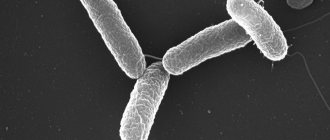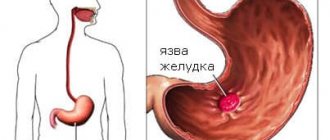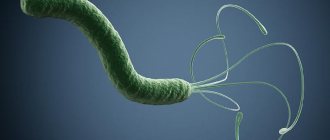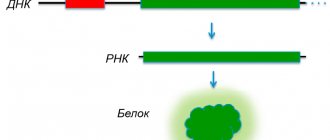Gastritis has become an epidemic of the 21st century. According to approximate estimates of health care structures, 90% of the world's population is susceptible to the disease. A lot of patients annually turn to gastroenterologists with characteristic complaints of stomach pain.
The stomach is an important organ. Thanks to him, a person receives the necessary nutrients. The gastrointestinal tract plays an important role in removing harmful toxins from the body. Gastritis significantly complicates the life of a modern person. Stomach pain, morning sickness or an unpleasant odor in the mouth come, a bad mood and the need to limit your diet, giving up your favorite foods, are tiring. Let's consider the reasons for this ubiquity of the disease. Perhaps gastroduodenitis is contagious?
Human stomach
The causes of gastritis vary among patients. This includes improper and unbalanced nutrition, abuse of junk food, especially spicy food. The possible stress that has become part of modern life is to blame. Until recently, it was generally accepted among doctors that gastroduodenitis and other diseases of the intestinal cavity are caused exclusively by an unbalanced diet, anxiety and bad habits. However, a certain Australian scientist managed to prove the opposite. Dr. Barry Marshall was able to prove that in most cases, gastritis is infectious. The scientist came to the conclusion that the causative agent of gastritis is the bacterium Helicobacter pylori. Before the discovery, it was believed that the bacterium was not the root cause, but a consequence of the appearance of gastritis.
The bacterium Helicobacter pylori is a harmful and dangerous microorganism that parasitizes the walls of the digestive tract. It is a spiral-shaped gram-negative bacterium that lives on the mucous membranes of the intestinal tract. To prove the correctness of his own theory, Dr. Marshall self-infected himself with a bacterium. A week later, the scientist developed symptoms of gastritis. With the help of antibacterial therapy, the brave doctor managed to cure the disease within 14 days. Subsequent gastroscopy revealed no signs of gastritis. The medical experience was described in detail in the Medical Journal of Australia, and caused a flurry of emotions among the scientific community. Thus, Dr. Barry Marshall was able to prove his own hypothesis: 90% of cases of the disease are caused by infection with the bacterium Helicobacter pylori. For the discovery, the scientist received the Nobel Prize in 2005.
Helicobacter pylori bacterium
Is Helicobacter transmitted by kissing, and how to avoid infection?
A bacterium called Helicobacter pylori is one of the key causes of gastric and duodenal ulcers at any age. The life cycle of this microorganism leads to the fact that the gastric mucosa loses its protective properties and becomes vulnerable to exposure to an acidic environment. Considering the statistics on the incidence of gastric ulcers and gastritis, the issue of preventing Helicobacter pylori infection does not lose its relevance.
The main disease of the stomach is chronic gastritis
And here you can’t do without the help of a doctor, and much more serious help will be needed. Each of us knows from our own experience what abdominal pain is. Sometimes the discomfort goes away on its own; other times we habitually reach for pills. However, if the pain comes back again and again, you should not self-medicate, because you need to look for the cause, and not relieve the symptoms, in which case it is better to trust a specialist. After all, pain in the stomach can be a sign of a number of diseases. The most common of these is gastritis.
Chronic gastritis is an inflammatory process of the gastric mucosa, one of the most common diseases of the gastrointestinal tract.
How to recognize the manifestations of gastritis? Chronic gastritis is an inflammatory process of the gastric mucosa, one of the most common diseases of the gastrointestinal tract.
With increased acidity, the aggressive properties of hydrochloric acid increase; with low acidity (hypoacid and anacid gastritis), food is retained in the stomach and fermentation processes intensify. Inflammation of the gastric mucosa causes the body to disrupt the process of digesting food. And this worsens the general condition of the body, reduces performance, causeless fatigue, weakness and other symptoms appear, which even the person himself for some reason ignores, not caring about the possible consequences.
The main manifestations of gastritis may be pain or discomfort, burning in the upper abdomen, heaviness after eating a small amount of food, an unpleasant taste in the mouth or belching “sour” or “rotten egg”, usually in the morning. However, after consuming food or liquid, symptoms may decrease somewhat. Other symptoms (which indicate involvement of the esophagus in the inflammatory process) include heartburn (a burning sensation behind the sternum), belching of air or recently eaten food, and sometimes nausea. If unpleasant sensations bother you constantly and do not go away for more than a week, you need to consult a doctor in order to determine the cause, establish a diagnosis and begin adequate treatment, which can help avoid unpleasant complications. Chronic gastritis can occur without symptoms - this picture is observed in approximately half of the people suffering from this disease.
To the question “What causes gastritis?” most will answer quite easily: poor diet, too much spicy food, smoking, drinking alcohol. Some will name stress and the use of certain medications. All this really influences the appearance of the disease. However, recent studies prove that most often all these factors are not the main ones. In approximately 85% of cases, the disease occurs “thanks to” the bacterium Helicobacter Pylori (Helicobacter) that lives in the stomach. This discovery at the end of the 20th century became one of the turning points in gastroenterology - after all, it was traditionally believed that it was impossible to “get infected” with gastritis.
Infection more often occurs within a family or other closely communicating groups, since the infection spreads when using the same utensils, failure to comply with hygiene rules, and overcrowding. Often the infection is transmitted from mother to child (through saliva that gets on the pacifier, spoon and other objects). You can become infected with Helicobacter pylori even by kissing. Bacteria in the stomach “sleep” indefinitely, and then at some point they begin to “act”, causing illness. Moreover, the probability of developing chronic gastritis if a person is infected before the age of 20 is more than 50%; in this case, he develops the so-called “Helicobacter gastritis”. Its peculiarity is that it is difficult to treat, provokes an increase in exacerbations of gastritis, and is highly likely to cause various complications, primarily ulcers and stomach cancer. If such an ulcer is treated with conventional means without destroying the bacteria, then the probability that it will occur again is extremely high and is close to 90% within the first year after the end of therapy. Therefore, it is necessary to approach the treatment, and therefore the removal from the body of the main enemy of the stomach - Helicobacter, very carefully and with all seriousness.
How to cope with gastritis?
First of all, you should remember: in the fight against Helicobacter pylori gastritis, almagel alone will not help, it is only a symptomatic remedy that will relieve discomfort for a short time: more serious remedies are needed here, moreover, prescribed by a doctor after a thorough examination.
It is desirable that this examination include all the necessary tests - instrumental (fibrogastroscopy - which allows you to fully determine the condition of the gastric mucosa and reliably detect the presence or absence of bacteria) and laboratory (breath test and blood test from a vein). Diagnosis of infection by blood test is less reliable, because it only determines the presence of antibodies to the bacterium - immune cells, and not Helicobacter itself. You need to perform either fibrogastroscopy or 2 methods, a breath test and a blood test. If the result is positive, it is necessary to eradicate the pathogen, that is, to cleanse the body of it. In this case, treatment regimens specially developed by the Society of Gastroenterologists are used.
In addition, the doctor will recommend a suitable diet - both during treatment and after it. A good addition to the tablets would be, in case of high acidity, the habit of not eating citrus fruits or drinking their juices, you should temporarily forget about chocolate and coffee, and do not abuse spicy foods and alcohol. With low acidity, food should not be very hot or cold, it should be chewed thoroughly. They recommend products that have a juice-containing effect (meat and vegetable decoctions, lean meat, fish, herring in small quantities, black caviar, herbs, vegetables, fruits, lactic acid products, for example, cottage cheese, preferably homemade, cheese, as well as juices, jam, etc. .).
It is easier to cure any disease in the early stages - before something serious happens. Therefore, if abdominal pain, even infrequently occurring and not severe, bothers you again and again, it’s time to contact a gastroenterologist who will help solve this problem. The sooner you start treatment, the better the effect you can get.
How does Helicobacter infection occur?
The introduction of Helicobacter pylori infection into the digestive tract will not occur if you shake hands with a person who is a carrier of the bacteria or when you are in the same room with him. In order to become infected, it is enough to consume either contaminated water or food, as well as neglect the rules of personal hygiene (through unwashed hands) and the rules of food hygiene. If we talk about alternative methods of transmission of Helicobacter pylori, then this can happen during a kissif one of the partners is a carrier of the bacterium. Modern conditions and the pace of life do not allow us to completely protect ourselves from potential sources of infection, but special medications help protect the body as much as possible from harmful bacteria.
What's the result?
Based on the above data, gastritis is contagious. As modern medical research has shown, the causative agent of gastritis is the infectious bacterium Helicobacter pylori. The microbe is dangerous, under certain favorable factors it causes a lot of trouble, leading to the development of cancer in the patient. Most often, the bacterium does not cause any inconvenience to the host. In the modern world, every third person on the planet is infected with it, but not everyone develops gastritis. The phenomenon is accompanied by a number of factors.
Helicobacter is easily transmitted from a sick person to a healthy person. Transmission occurs through household contacts, kissing or intimate caresses. If a family member has been exposed to the disease, it is worth limiting his tactile contact with his family for a certain time.
In selected cases, gastritis is inherited. It is considered possible that the gene for predisposition to gastritis can be passed on from parents to children. You should pay close attention to your health if you have a family relative with stomach cancer or another gastrointestinal cancer. Living conditions and contact with infected people will seriously affect health. You should not refuse to take a test to detect Helicobacter pylori. As medical practice shows, proper treatment will help prevent a lot of unpleasant diseases in the future.
Gastritis is a complex disease that can be transmitted from a sick person to a healthy one. At the first symptoms, you must undergo a full course of examination by a doctor.
Symptoms of infection
Helicobacter pylori infection can be recognized by the following specific signs:
- Heaviness and discomfort in the epigastric region.
- Belching sour.
- Heartburn.
- Stool disorders in the form of alternating constipation and diarrhea.
- Decreased appetite.
- Loss of body weight.
- Bad breath.
As a rule, the listed symptoms begin to bother a person at the stage of active development of gastritis or gastric ulcer. At the initial stage of infection, this condition occurs in an asymptomatic form.
What is Helicobacter pylori
This is a gram-negative microorganism with a spiral shape that actively develops in an acidic gastric environment. They move quickly using flagella. They have a negative effect on the walls of the stomach. Microbes in the process of vital activity secrete acids that can destroy epithelial cells of the surface layer of the mucosa. This causes inflammation and characteristic symptoms.
A feature of the microorganism is its ability to change its morphological shape and envelop itself in a protective film. This creates difficulties in treatment, since the film protects it from negative effects and the microbe becomes resistant to antibiotics. H. pylori can cause not only bacterial gastritis, but also ulcers.
How Helicobacter pylori enters the body
Is bacterial gastritis transmitted from one patient to another? Yes, since the main method of infection with a microbe is through household contact and fecal-oral contact. If hygiene is not observed, as well as during kissing, microorganisms enter directly into the human gastric tract.
How to avoid infection
In order to reduce the likelihood of Helicobacter pylori infection entering the digestive tract, it is recommended to follow these simple rules:
- Each family member should have individual cutlery and dishes.
- You should only eat pre-washed vegetables and fruits, thermally processed fish and meat.
- If possible, you should avoid eating food using other people's cutlery, including catering establishments.
Clinical picture of the acute form
Signs of the acute form were:
- sharp pain in the stomach;
- diarrhea;
- temperature increase;
- chills;
- vomit;
- lack of appetite.
Due to large loss of fluid (frequent diarrhea, vomiting), the patient develops symptoms of dehydration: dry skin, coated tongue, dizziness, hypotension. Treatment must be carried out quickly so that the symptoms of intoxication do not increase. Therefore, when the first signs of acute gastritis appear, you must contact a medical facility.
Drug prevention
Compliance with the rules of personal hygiene and food hygiene cannot fully protect a person from Helicobacter infection. Special therapy aimed at suppressing the growth and reproduction of the pathogenic microorganism helps to protect the body as much as possible from infection and eradicate the bacteria. It has been clinically proven that timely eradication of Helicobacter pylori infection can minimize the likelihood of developing complications associated with the entry and reproduction of this type of microflora.
Metaprebiotic Stimbifide Plus is a relatively new link in the prevention of Helicobacter pylori infection. The combined effect of the drug is aimed at suppressing the growth of pathogenic microflora (antibiotic-like effect) and stimulating the proliferation of natural microbiota in the stomach area.
The effect of the drug is due to the content of natural metabolites of beneficial bacteria that live in the lumen of the stomach and large intestine. These substances are a breeding ground for beneficial microorganisms and have a detrimental effect on Helicobacter pylori infection. The positive effect of metaprebiotic extends not only to the stomach area, but also to the large intestine. Under the influence of the drug, the population of beneficial microorganisms that form intestinal immunity increases.
Reasons for development
The main reason why infectious gastritis of the stomach occurs is the entry into the body of a harmful microbe that can cause inflammation of the gastric mucosa. These microorganisms were Escherichia coli , Klebsiella , Salmonella , and H. pylori . Infectious gastritis develops against the background of:
- dysentery;
- fungal infections of the body;
- venereal diseases;
- lesions by staphylococcus;
- tuberculosis.
What bacteria most often causes gastritis? This is Helicobacter pylori. It is this substance that, when it enters the body, causes symptoms characteristic of gastrointestinal pathologies. But the microbe does not always provoke the development of bacterial gastritis.
There are predisposing factors that contribute to pathology:
- presence of bad habits;
- errors in nutrition;
- taking medications that negatively affect the gastrointestinal tract;
- frequent consumption of sweet soda;
- trauma to the gastric mucosa of various etiologies;
- stress;
- hormonal disbalance;
- decreased general immunity.
The presence of one or more factors creates a favorable environment for the development of pathogenic microorganisms.
How is prevention performed?
The infection prevention regimen depends on the person’s age. The standard plan for taking a metaprebiotic is as follows:
- Children over 14 years of age and adults: 2 tablets, 3 times a day with meals. The total duration of the course is 30 days. The number of courses is determined for each person individually.
- Children over 3 years old: 1 tablet 3 times a day, during meals.
During clinical trials, it was found that a course of taking the metaprebiotic Stimbifide Plus led to complete eradication of Helicobacter pylori infection . In addition, the ascorbic acid contained in the composition helps strengthen the immune system and fight the inflammatory reaction that could occur during an infectious lesion.
Infectious form of gastritis in children
This form of gastritis has recently been often diagnosed in children. This is due to stress, eating foods containing a lot of preservatives and chemical additives. The most common infectious gastritis among children is caused by H. pylori. This is due to the fact that infection occurs through contact, that is, from one child to another if hygiene rules are not observed. Symptoms that should alert parents:
- refusal of food;
- decreased activity;
- temperature increase;
- dyspeptic disorders.
Small children are capricious, they are not interested in toys, they hold on to their stomachs, thereby indicating where it hurts. If this condition lasts more than a week, then you need to consult a doctor. In addition, if a family member suffers from a gastrointestinal disease and the child periodically has indigestion, then this is also a reason to consult a doctor.
Is gastritis transmitted through kissing?
Gastroduodenitis, or rather the bacteria that causes it, can be infected by saliva, therefore, by kissing
Gastroduodenitis, or rather the bacteria that cause it, may be infected by saliva, therefore, by kissing. The hereditary factor is very important in the development of pathology. It also causes illness. Parents who complain of gastroduodenitis can pass on a certain gene to their children, provoking the development of pathology. After birth, the baby has a tendency to develop gastritis, and not the disease itself. The progression of the pathology depends on many factors, including lifestyle, so one should not say that the disease is necessarily hereditary.
Recipes for treating gastritis
After acute symptoms are relieved, gastritis can be treated at home. But before starting such therapy, you need to consult a doctor, since certain infusions and herbal preparations correspond to different types of the disease (with high or low acidity).
The easiest way is to buy at the pharmacy a set of medicinal herbs used in the treatment of hypoacid or hyperacid gastritis. This is written in the instructions for the drug. In folk medicine, flax seeds, honey, propolis, St. John's wort, thyme, etc. are used to treat inflammation of the gastric mucosa.
How is gastritis transmitted?
The pathological process, which begins as a result of exposure to Helicobacter pylori, is by its nature an infectious disease that can be transmitted. Half of the population is a carrier of the pathogen. Children are most susceptible to influence. Bacteria are transmitted in the following ways:
- with air droplets
- with a handshake or saliva
- non-sterile medical devices,
- through dirty dishes or towels.
Diagnostic procedures
Since infectious gastritis is caused by a microbe, diagnostic methods are aimed at identifying it. First, the doctor interviews the patient, collects anamnesis, finds out if there are any gastrointestinal pathologies in the family, palpates the abdomen, and examines the oral cavity. Then the patient is prescribed:
- general blood analysis;
- stool analysis;
- serological blood test (detection of pathogenic microbes);
- determination of gastric acidity;
- Ultrasound and X-ray of the stomach;
- gastroscopy with mandatory biopsy.
Based on the research results, a diagnosis is made, the pathogen is identified and the correct treatment is prescribed.
How can you get gastritis: ways
Gastroduodenitis is a disease caused by Helicobacter pylori and is contagious. Adults and children can easily become infected anywhere. Scientists say the bacterium infects most of the world's population.
The microorganism is transferred in the following ways:
- through the use of shared items,
- by airborne droplets (saliva, in close contact with an infected person),
- through a medical instrument,
- lack of personal hygiene.
Treatment of infectious inflammation
Infectious gastritis must be treated comprehensively:
- medicines;
- diet;
- normalization of the daily routine.
Medicines are selected for each patient individually, depending on the pathogen and the patient’s condition. Treatment of H. pylori is carried out according to a regimen that includes 2-3 antibiotics ( Clatrithromycin , Furazolidone , Amoxicillin ). In addition, the patient is prescribed drugs that can restore the gastric mucosa. For hypoacid gastritis, bismuth-based medications ( De-nol ) are prescribed.
For increased acidity, the use of antacids ( Phosphalugel ) and proton pump blockers ( Omeprazole ) is indicated. If the pain syndrome is severe, then take painkillers.








